Aesthetic
An aesthetic is hard to achieve.
It’s why novels are so difficult.
It’s one thing to get lucky and write a really good poem or even a short story. But to sustain an effect for the length of time it takes a good novel to saturate your imagination is quite an achievement.
If novels aren’t your thing, consider music. Pop songs will come and go but an artist who creates an aesthetic makes you listen to the whole album from start to finish. To you, every song is a hit—although radio and streaming services will try to convince you otherwise.
Or, if songs and books aren’t your thing, take movies as your example. Aesthetic is what separates Michael Bay from the Coen Brothers. You can watch one of Bay’s actions movies and think of several directors (if granted the budget) who could duplicate the feel of the movie. When watching the Coen Brothers, you are distinctly aware that no other filmmakers could replicate what you are experiencing. Their body of work has a texture, a feel. While hard to fully grasp—and I’d argue it is impossible as understanding true aesthetic is like pretending there is one distance to the sun—the sensation is undeniable.
Take the esque-dubbing of artists as proof. Something is Kafka-esque, for example, not because it is horrific, but because it expresses something derivative of Kafka’s unique brand of horror.
— — — — — — — —
Allow me to take a quick opportunity to mention this blog’s sponsor: sobriety. I spent my drinking and using days panicking over nonsensical ideas and irrational fears. Please understand that spending an hour in a rocking chair, smoking a tobacco pipe, and thinking of the nature of beauty is an absolute luxury. An extravagant one. I am deeply blessed and only so because I surrendered my will and life (especially my drinking and using) to the love and care of a higher power I call God. Now back to our regularly scheduled post—published and sent for free to your inbox on the 2nd and 4th Mondays if you subscribe.
— — — — — — — —
Aesthetic has been on my mind since a conversation I had with a colleague about The Life and Death of Yukio Mishima by Henry Scott Stokes. She told me about the book after I told her how much I enjoyed reading The Sailor Who Fell from Grace with the Sea. My thoughts on these books and more, by the way, are now all posted to my Goodreads account. I highly recommend the app. I don’t know why I only now took the leap of faith to sign up, but it is well worth it.
Sexual orientation is one thing about which Mishima’s biography is uncertain. It is clear he had homosexual relations, but whether or not he was gay was never made clear. My colleague asked me about that. My answer was that Mishima was married to his aesthetic. From a young age, he loved beauty. Throughout his life he remained loyal to his conception of beauty—which includes blood, carnage, and eroticism in equal measure—I highly recommend his work. For a guy like Mishima, how he identifies as far as sexual inclination is not as important as his commitment to his craft. He wrote in every form imaginable and produced a staggering oevre, never suffering from creative droughts or spells of inactivity. For a guy like that, aesthetic is everything. As proof, Mishima committed Hara Kiri—suicide—for it.
The easiest aesthetic I know to grasp is the poetry of Robert Frost. Wherever you read him, you feel as if you’re in a New England apple orchard or snowy forest. Like Mishima, Frost’s aesthetic came at a heavy price.
It’s easy to claim that most aesthetes live a troubled life.
Anyone who is willing to put some principle in art above their lives will suffer for it. This is where we get the persona of the struggling artist. Frost famously dictated that his tombstone read he had a lover’s quarrel with the world. And the main criticism of people who live their lives that way is that they struggle in vain. Some claim artists hold the frivolity of art higher than the substance of the world and its realer implications. I don’t think it’s as simple as that.
Not everybody crushes themselves in their pursuit of beauty. Sure, there are the Kerouacs and the Bukowskis who let what they love kill them, but there are a lot of ways to achieve aesthetic without ruining your life or the lives of those around you.
I see it happening more and more today with this wonderful new recovery aesthetic that is taking root in the collective imagination. Let’s face it. Sobriety is in vogue. There are more popular writers and artists creating today from a place of sobriety than there were artists drowning themselves in drugs and alcohol to create a century ago, even a decade ago. My opinion, of course.
For as chaotic as the 24-hour news cycle has made the world appear—and as myopic as social media has made the experience of that world become—literature is more frequently siding with the solution to life’s problems every year. This is really important, I think, in light of the opioid epidemic. It also stands as proof that people reading less and less on average does not make books any less essential.
Not that books are required to live in appreciation of beauty. They are one of many vehicles. They just happen to be my favorite ride.
People who aren’t artists live out their aesthetic every day. They make a family or sustain a career. People develop an abiding faith or a working philosophy that defines their life and how they treat others.
Since marrying my wife, I have embarked on one such journey. Navigating my role as a husband and father has been immensely challenging. But the rewards have been far greater than any other stroke of fortune or luck or achievement or success I’ve had.
Yes, there is a part of me that will never be satisfied until I get this book I’ve written and the many books I’ve nearly written and the ideas of books to come published and out in the world. That part of me will always crave recognition for the exhausting hours I’ve spent to put to paper my own aesthetic. But that part of me—the ambitious one—must always yield to the necessities of my life at home. It’s that bizarre paradox whereby a famous writer’s greatest impact can never be on the millions of people who read his work, but the select dozens of people who knew him or her as a person.
My point is that you don’t have to cut off your ear like Van Gogh to live a life that creates enduring meaning.
It begins by answering the most important question out there. Who are you? Once that question is answered, you will forever be embarking on a meaningful life. Setbacks and sidetracks will only lengthen your story. A story that never need end.
So hello, my name is Mark Goodson. I suffer from alcoholism and addiction. I am a husband and father. I teach books to teenage boys. I am a writer who finds inspiration in the roles and responsibilities this life has bestowed upon me. I do my best and I fall short of my best every day. Not a moment goes by that I shouldn’t be thankful to the many people who gave me a life worth living—to all those who carry me when I let go.
These things were easy to admit once I surrendered to them. What’s difficult is maintaining what is most important to me in the face of a world that wants to convince me that thousands of other things should be more important.
Be yourself, yes. But know that person is found in the mirror, not the screen. And know that person is beautiful.

 Previous Post
Previous Post Next Post
Next Post
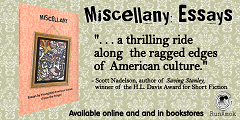


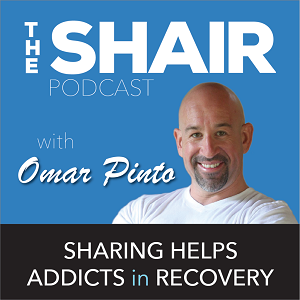
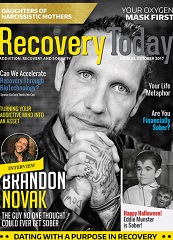
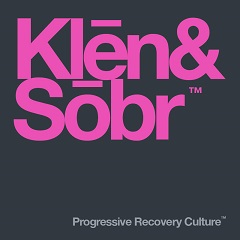
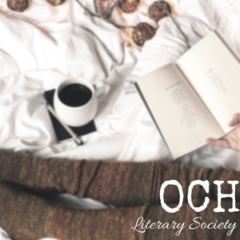





Just fabulous Mark. We should really talk Mishima. I have taught Sailor, Patriotism, Sound of Waves, and I have co-taught Runaway Horses in a college class. It would be good to think out loud together about auteurs and artists and those whose art is on the margins or generally not thought of as “art”–like those who are good husbands and fathers–they practice a craft or calling but it becomes an art.
I would enjoy that very much. We are around all summer so I can easily crash your summer hours some time.
We all have our roles, some more “popular” than others, however not less important to Him. Some realize and some are just doing their dance. To acknowledge and smile at those I encounter, to consume the products of creatives I appreciate, I am sated. Mark, you make me think and help me know that all is well and to persevere in doing “the next right thing.”
I’m so glad you stopped by and read and left a comment for me.
You’re right. The most important role is being a child of God! All else is secondary. I like the way you put that.
Beautifully written, as usual Mark. Lovely piece. Much love… AndX
Thank you brother. How are things at The Edge?
This is lovely, I’m just getting back into my books and culture after spending the past few years as a wife, mother and alcoholic. Instead of spending my free time doing things I loved, I thought and felt I loved drinking.
Isn’t the new free time great? I’m so glad your finding worthwhile sober pursuits. I’ve felt more inspired in sobriety than I ever thought possible. Thanks for stopping by!